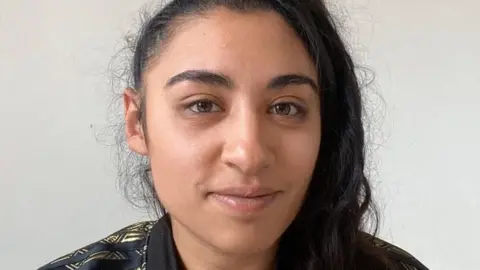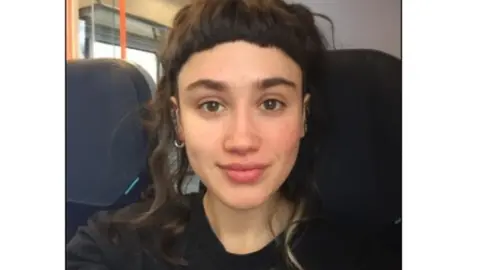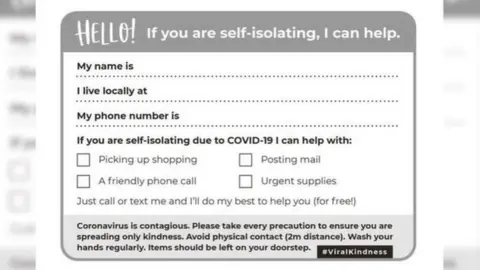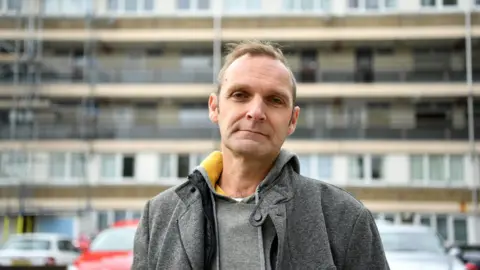Coronavirus: Volunteers flock to join community support groups
 Kelsey Mohammed
Kelsey Mohammed More than 1,000 volunteer groups have been set up to help those self-isolating during the coronavirus outbreak.
Tens of thousands have come forward offering to pick up shopping or deliver medicine to the most vulnerable.
Covid-19 Mutual Aid UK, an umbrella organisation co-ordinating the groups, is itself run by around a dozen volunteers from south London.
Co-founder Kelsey Mohamed, 28, said the response had been "overwhelming".
"It shows us what's possible when we prioritise simple compassion," she said.
"People are self-organising with incredible efficiency, respect and creativity."
Seren John-Wood, 24, helped set up the first mutual aid group in Lewisham, south London, on 12 March.
The theatre worker and her housemates distributed leaflets around their local area asking if people needed food or medicine delivering.
Shortly afterwards, the friends decided to launch an umbrella organisation to guide the various groups around the UK.
 Submitted
SubmittedIts website displays a map of known volunteer groups which have appeared in areas including Cornwall, Northern Ireland and Scotland.
Some cover a single street, others a neighbourhood, ward or town.
In Lewisham, the support network has grown so big those in need of assistance are marking their windows with a red piece of card.
There are now 4,000 members on the local Covid-19 Mutual Aid page.
Though people in need of them are being urged to be wary of potential scammers, especially when handing over money.
 Submitted
SubmittedNicola Spurr, 47, who works for non-profit organisations, launched various groups in the Bayswater area of London over the weekend.
Hundreds of people quickly signed up as volunteers to shop for the elderly, deliver medicine and walk dogs.
"I've lived in Lancaster Gate for two years and I've never really spoken to my neighbours," she said.
"London can be a bit like that, it can be a lonely place.
"But we saw this huge outpouring of solidarity and neighbourliness straight away."
Dieticians, therapists and dementia specialists were among some of the people offering their services for free, she said.
 Darren Pepe
Darren PepeIn nearby Kingston, Councillor Olly Wehring has set up a group in the Norbiton area.
"Norbiton has always had a strong community feel, yet I'm blown away by how many residents have offered to help," he said.
But there are concerns criminals could take advantage of informal set ups to exploit the vulnerable.
In Brighton and Hove, a councillor is creating an ID card with a space for a photograph to ensure the helper is who they say they are.
Mutual Aid is advising its groups to check up on helpers to make sure they have properly fulfilled requests.
A post to the national group said: "If you are giving or receiving help, tell someone, a friend, family member, or someone on this group, what the plan is.
"Even if you think you're the most savvy person ever, ask them if something sounds off."
In most cases the groups are providing hope to elderly residents who could be forced to self-isolate for four months.
Islington resident Hope Winter-Hall has a disability care package and is looking after her 92-year-old mother.
"We already knew that social services and the NHS were overwhelmed before this virus hit," she said.
"I am very well-prepared for months of isolation but I will be needing help before it is over.
"Finding the Islington Mutual Aid group lifted our spirits and changed our view of the future."
BBC Local Radio stations across England are helping to keep communities connected during the Coronavirus crisis.
If you want to Make A Difference get in touch with your BBC Local Radio station at bbc.co.uk/makeadifference
